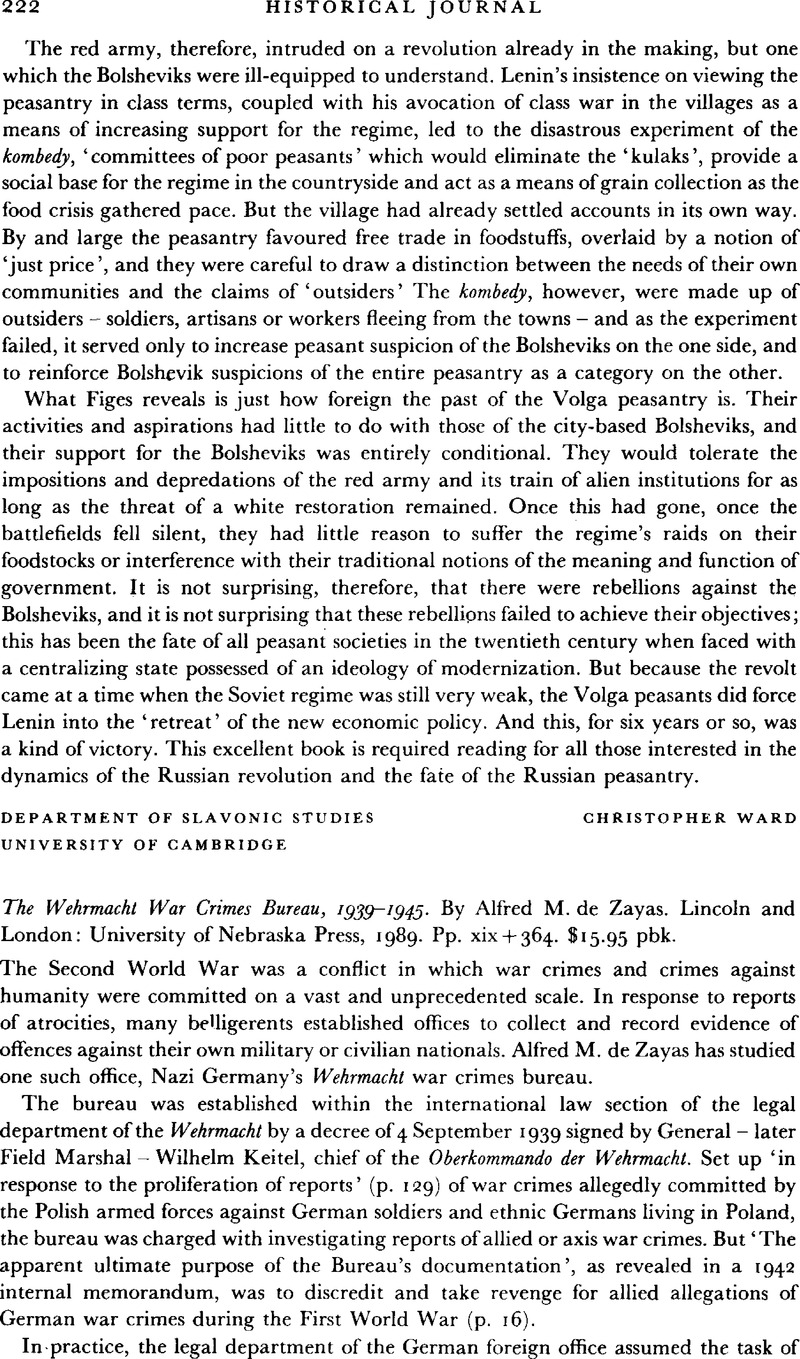No CrossRef data available.
Article contents
The Wehrmacht War Crimes Bureau, 1939–1945. By Alfred M. de Zayas. Lincoln and London: University of Nebraska Press, 1989. Pp. xix + 364. $15.95 pbk.
Published online by Cambridge University Press: 11 February 2009
Abstract

- Type
- Other Reviews
- Information
- Copyright
- Copyright © Cambridge University Press 1991
References
1 Förster, Jürgen, ‘The Germany army and the ideological war against the Soviet Union’, in The policies of genocide: Jews and Soviet prisoners of war in Nazi Germany, edited by Hirschfeld, Gerhard (London, 1986), p. 16Google Scholar. For example, on 27 March 1941, the commander-in-chief of the army, Field Marshal von Brauchitsch, ‘demanded that his military commanders recognize the German-Russian war as “a struggle between two different races, requiring their troops to act with all necessary harshness”.’ Förster, p. 17. For comments on the complicity of the Wehrmacht in Nazi policies of genocide, including the actions of the Einsatzgruppen, and the acceptance by the military leadership in general of Nazi anti-Soviet and anti-Jewish propaganda, see also Mommsen, Wolfgang J., ‘Introduction’, pp. xi–xiiiGoogle Scholar, and Streit, Christian, ‘The German army and the polìcies of genocide’, pp. 1–14Google Scholar, in The policies of genocide.


